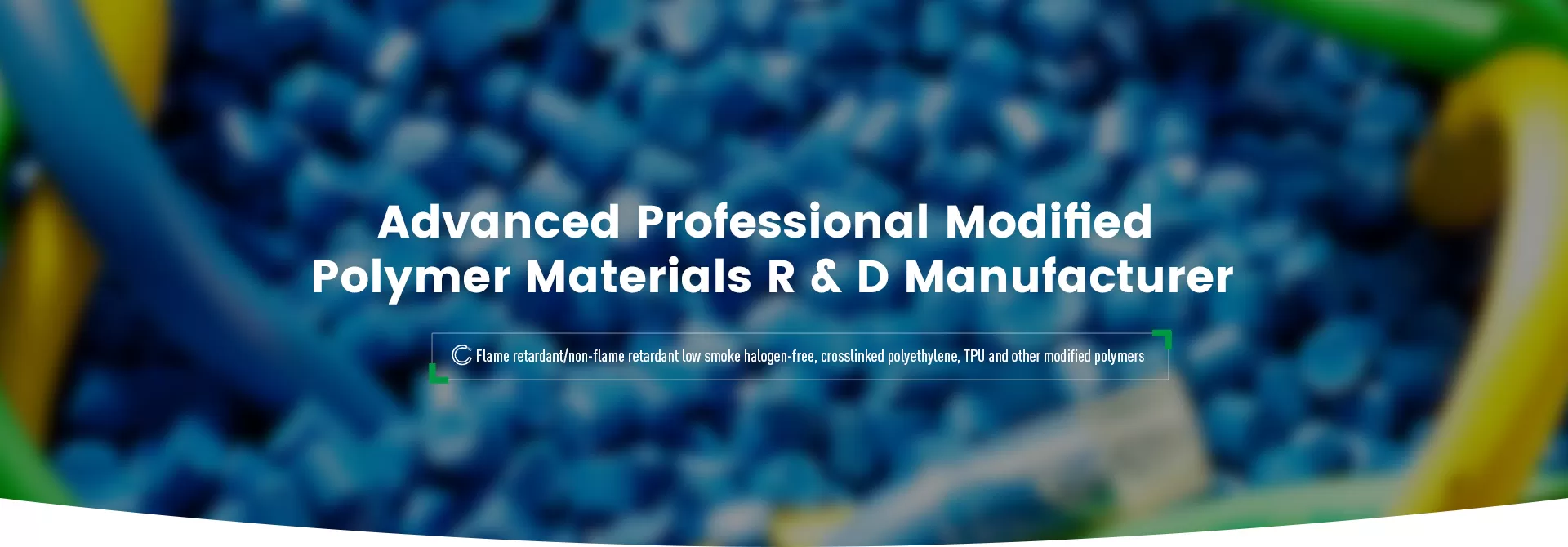
With the continuous expansion of the new energy vehicle industry, the coverage density of charging facilities has increased rapidly. In charging equipment, charging gun cables carry the key functions of power transmission and signal interaction, and the performance of their sheath materials directly affects the safety, service life and environmental adaptability of the entire system. Among many materials, Thermoplastic Polyurethane (TPU) is widely used in electric vehicle (EV) charging gun cables due to its excellent weather resistance, flexibility, mechanical strength and environmental stability.
Thermoplastic Polyurethane (TPU for short) is a thermoplastic elastomer material that combines the advantages of plastics and rubber. It consists of soft segments (such as polyester or polyether) and hard segments (such as isocyanate segments), and its hardness, elasticity, wear resistance and weather resistance can be adjusted through different formulations.
TPU Material Have The Following Core Performance Characteristics:
Excellent flexibility and resilience
Good wear resistance and tear resistance
Wide operating temperature range (approximately -40℃ to 105℃)
Excellent UV, ozone and hydrolysis stability
EV charging gun cable are usually in outdoor environments for a long time and face complex and harsh external conditions. Its sheath material must meet the following basic requirements:
| Project | Performance requirements |
| UV | Long-term UV radiation resistance to avoid cracking and hardening |
| Temperature shock | Working temperature must cover -40℃to +90℃ (some scenarios require up to 105℃) |
| Hot and humid environment | Anti-hydrolysis and anti-mold |
| Chemical resistance | Anti-oil and detergent corrosion |
| Mechanical stress | Frequent pulling, bending, and rolling |
TPU material, due to its excellent physical and chemical properties, is just the right material to solve the above challenges.

Angreen's Charging Pile Cable Material
After modification, TPU material can easily pass the UL1581 720-hour carbon arc aging test, and maintain its surface integrity and mechanical properties under strong ultraviolet irradiation:
Tensile strength retention rate ≥ 85%
Elongation retention rate ≥ 80%
No cracking, no obvious surface degradation
Compared with PVC materials, the UV resistance of TPU without additives is relatively excellent. After stabilizer strengthening treatment, TPU sheath can be stably used in ultraviolet exposure environment for more than 3 to 5 years.
According to the IEC 60811-504 standard, the bending test was carried out at -40°C, and the TPU sample had no cracking and no brittle fracture. The following are typical test results:
| Material Type | Bending temperature | Bending times | Result |
| TPU Sheath | -40°C | 10 times | Pass (no cracks) |
| PVC Sheath | -25°C | 5 times | Cracks |
This makes TPU particularly suitable for charging pile scenarios in cold winter regions such as Northeast China, Russia, and Northern Europe.
The use of polyether TPU can effectively improve the hydrolysis resistance. After aging for 168 hours at 70°C and 95% humidity:
The elongation at break retention rate is ≥90%
The volume resistance change is <10%
In addition, TPU itself has excellent mold resistance, meets the IEC60068-2-10 standard, and is effectively adapted to the rainy and humid areas in the south.
TPU has a low friction coefficient and good resilience, making it less susceptible to damage during repeated pulling and dragging on the ground:
Taber abrasion value (1000 turns, 500g): TPU ≤ 15 mm³ (reference standard ASTM D1044)
Tear strength: ≥ 80 kN/m (ASTM D624 Type C)
Bending life: can withstand 300,000 ±180° repeated bending tests
TPU can significantly extend the service life of cables in the frequent daily plugging and unplugging of public charging stations.
TPU materials used for EV charging gun cables must meet the following international and regional standards:
IEC 62893-3: Special standard for electric vehicle charging cables
UL 62/UL 1581: Performance requirements for cable sheaths in the US market
GB/T 33594-2017: China's standard for conductive charging connectors for electric vehicles
RoHS, REACH: EU compliance requirements for environmentally friendly materials
Well-known TPU materials such as BASF Elastollan and Covestro Desmopan have been widely certified and tested for the above standards.
Many mainstream EV charging equipment manufacturers have adopted TPU sheathed cables in their high-end series:
| Enterprises | Products | TPU usage scenarios |
| Xingxing Charging | Outdoor smart charging gun | -40℃ extreme cold area deployment |
| Telaidian | Commercial integrated charging pile | UV/high temperature area |
| ABB | Type 2 AC charging gun cable | EU RoHS compliance requirements |
| Feihong Technology | European standard charging gun | Flexible retractable charging cable |
When selecting TPU for EV charging gun cables, the following dimensions should be considered comprehensively:
Outdoor service life≥ 5 years: Select UV-resistant enhanced TPU (polyester-based recommended)
Strong demand for low-temperature flexibility: Use polyether TPU or mixed flexible additive system
Priority for mechanical strength: Select high molecular weight, high hardness grade (Shore A>90) formula
High environmental certification requirements: Ensure that the material passes RoHS, REACH, halogen-free and other tests
As a high-performance thermoplastic elastomer, Thermoplastic Polyurethane has stable and reliable performance in the field of electric vehicle charging gun cables due to its advantages of UV resistance, low temperature resistance, hydrolysis resistance, and strong wear resistance. Its comprehensive performance is significantly better than PVC and traditional rubber materials, and is particularly suitable for EV application scenarios with high requirements for safety, life and environmental adaptability.
For cable manufacturers and whole pile system suppliers who want to improve product quality and market competitiveness, TPU sheath materials will be one of the key choices for product upgrades.